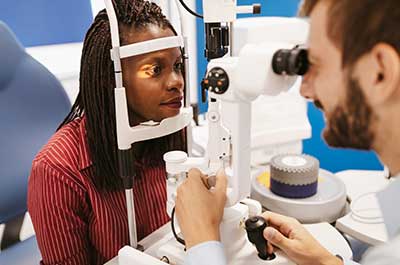Multiple sclerosis (MS) is a major diagnosis that can upend your life in many ways, but getting diagnosed early can slow the progression of this condition.
“Early MS symptoms can be difficult to identify,” says Mirela Cerghet, M.D., a neurologist at Henry Ford Health. “It all depends on where the central nervous system is affected by the condition.”
For example, if MS affects your optic nerve, you might experience blurry or loss of vision. Or it could affect nerves throughout the body that help with movement and coordination leading to symptoms such as vertigo, weakness, numbness or balance issues. The biggest thing to remember is that not everyone with MS will experience the same symptoms.
When To Seek Care For Changing Health Conditions
If you develop any symptoms or changes in your health, it is important to monitor them. Symptoms of MS won’t appear suddenly or out of nowhere the way stroke symptoms often do. Instead, they develop over time but can progress quickly. Pay attention to any changes in your health and contact your doctor or seek care if symptoms last longer than 24 hours. Dr. Cerghet also stresses that if you are experiencing changing neurological symptoms (such as vision loss, double vision, muscle stiffness, spasms, tremors or speech problems), seek care right away.
“Sometimes symptoms of MS appear and then go away for a while, says Dr. Cerghet. “We often see this in younger patients who have a better chance of the body self-recovering. When someone is diagnosed later in life, their body might not be able to recover from the effects of the MS attack.”
The same can be said for diagnosing MS – the earlier your condition is diagnosed, the better chance you have at getting treatment to help slow its progression.
Diagnosing MS

Neurology At Henry Ford
Dr. Cerghet shares that MS is often diagnosed in two different ways – either in the emergency room or by referral to a neurologist. In the first scenario, patients may come into the ER when their symptoms have become severe and impact functioning (like blurry vision that has progressed to loss of sight). In this case, patients will likely get an MRI and spinal tap to determine the changes they are experiencing are the result of MS.
Other times, someone may have milder symptoms they discuss with their primary care physician first. From there, the doctor will likely refer you to a neurologist for a more comprehensive exam. A neurologist might order additional tests to rule out other neurological conditions before diagnosing you with MS.
While there is currently no cure for MS, there are things that can be done to help slow the progression of the disease. “Early diagnosis means early treatment,” says Dr. Cerghet. “The sooner you are able to start treatment, the less of a chance the disability will impact you later on. Plus, we can increase the time between any relapses and ER visits associated with your condition.”
Not everyone will experience the same symptoms that result in the MS diagnosis. Dr. Cerghet stresses that the early signs shared here – vision or balance issues, numbness, weakness - are the most common symptoms you might encounter, though there are many more that could be the result of MS. Research is ongoing to determine if there are prodromal symptoms of MS (early symptoms of the illness that appear before major signs or symptoms used to diagnoses the disease start). If you notice any changes in your health, it is important to talk to your doctor about them or seek care immediately if they progress quickly.
Reviewed by Dr. Mirela Cerghet, head department of the multiple sclerosis clinic and program director for the Multiple Sclerosis Fellowship at Henry Ford Hospital in Detroit.



